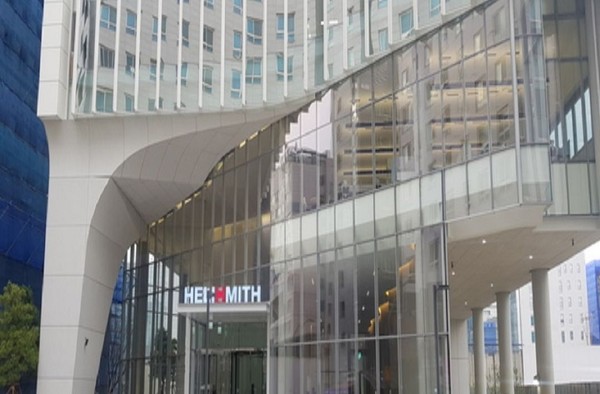Helixmith said that it has administered the first dose of VM202 to patients with amyotrophic lateral sclerosis (ALS) disease in the U.S. as part of its phase 2a clinical trial.
Helixmith plans to conduct the clinical trial in 18 patients at four clinical trial centers in the U.S. and plans to proceed with phase 2b clinical trial with more than 100 patients immediately after completing phase 2a study, the company said.

Helixmith is pushing ahead with its drug development plans in the U.S. However, the current CEO Kim Sun-young is struggling to keep control over his company as some of the company's shareholders are trying to hold a power of attorney with other shareholders' consent to replace Kim with a management specialist.
The dispute between the company's management and minority shareholders has recently accelerated after a local court allowed shareholders to view the shareholders' registry. The Seoul Southern District Court cited the request for a provisional disposition for reading and copying Helixmith's shareholders' list filed by five minority shareholders on Monday. The court ruled that Helixmith should show the list to minority shareholders and copy or store them in a device.
Industry insiders said the court's ruling has granted a power of attorney to the minority shareholder challenging Kim's management control over the company.
The move from minority shareholders comes after the company's past hick-up in developing VM202 and its controversial capital increase last year.
Helixmith carried out a large-scale capital increase last year, reversing its previous affirmation that there would be no capital increase in 2020.
The company also notified its investors that it had invested about 264.3 billion won ($231.9 million) in high-risk, high-return financial alternative assets since 2016 and ended up losing some of the money, enraging the disgruntled shareholders further. The investment into insolvent funds raised concerns about the Korea Exchange (KRX) designating the company as an administrative issue.
The company narrowly avoided such a situation due to a successful capital increase but is still having difficulty recovering the investment. However, minority shareholders stepped up their criticism of CEO Kim for not participating in the capital increase.
These shareholders claim that they have lost confidence in the current management, stressing it is necessary that the company needs a new management team to conduct clinical trials better in the future.
Unlike similar previous troubles, the ongoing dispute can be critical for the company as the largest shareholder, CEO Kim, and affiliated parties no longer have high stakes in the company, according to market watchers.
Currently, the largest shareholders and related parties have less than 10 percent shares of the company. As of Jan. 15, Kim had a 6.67 percent stake in the company. Even if he receives support from all affiliated parties, the company only holds a 9.42 percent stake.
It marked a significant decrease from the end of the third quarter of last year when Kim and his affiliates held a 12.14 percent stake in the company.
In comparison, small shareholders held 86.82 percent of the total stock at the end of the third quarter of last year.
Considering that Kim's ownership ratio has decreased since the capital increase at the end of last year, industry insiders expect small shareholders to hold an even bigger stake in the company right now.
Helixmith plans to hold the shareholders' meeting in March, deciding whether Kim will maintain control over the company he set as a university venture decades ago.

